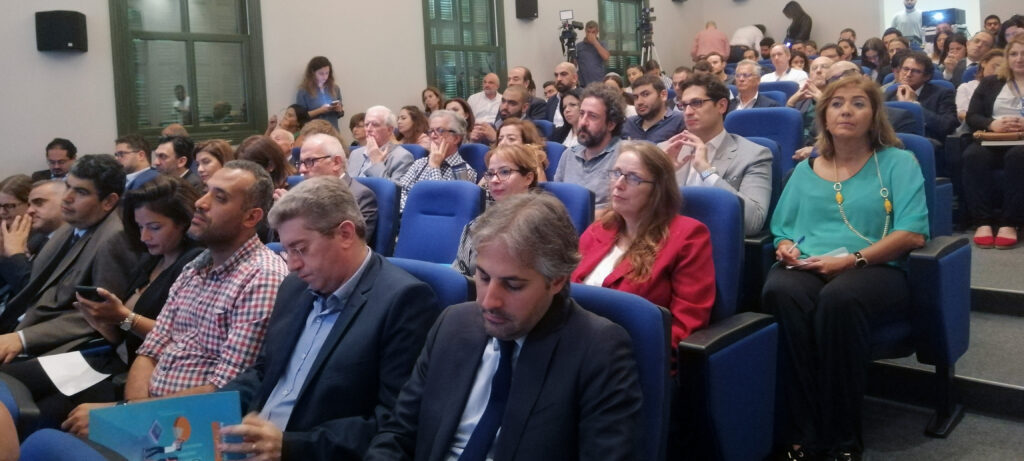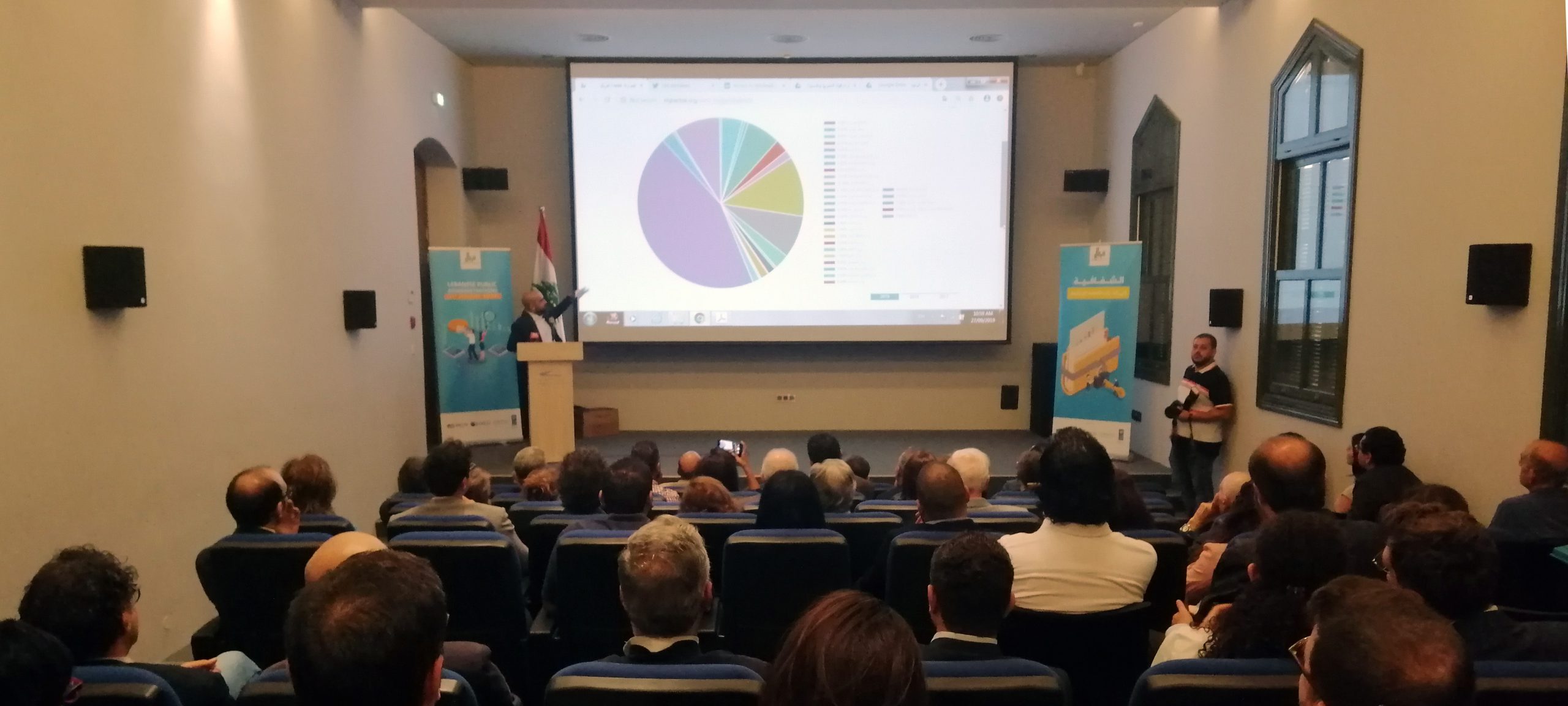On the occasion of the International Day for Universal Access to Information, Gherbal Initiative (GI), an initiative that works on fighting corruption in the Lebanese public and private sectors, released two reports that deal with transparency in Lebanese public administrations and their expenditure reports for 2017.
In collaboration with the Office of the Minister of State for Administrative Reform, GI hosted its conference on September 27 at the National Library in Sanayeh to release their reports and to inform the attendees on how to access information through their website.
All of their reports for the years 2017, 2018 and 2019 are available on their website and can be accessed by anyone for free.
In the first report, Gherbal presents a legal and technical understanding of the general budget in Lebanon, in addition to its components, methods of preparation, main principles and definitions of basic economic terms necessary to understand the public budget. They also provide a detailed budget of public administrations in the years 2017, 2018 and 2019.
According to their report, the Ministry of National Defense ranked first in expenditures with LBP 2,813,307,600 spent in 2017, whereas the Constitutional Council ranked last with LBP 1,873,065 spent in the same year.
The report also illustrated how minimal the government’s public funds are when it comes to investments. Government entities spend their expenditures on interest on public debt and on salaries instead of funding research or investments that can help the country’s economic growth. This is clearly shown in many ministries, such as the Ministry of Environment which assigned around 45.1 percent of its budget on salaries and wages in 2017.
The initiative, however, encountered many challenges when trying to collect such information. In fact, according to a recent study by the International Budget Partnership , Lebanon scores 3 out of 100 in terms of transparency and 0 out of 100 in public participation. Such results aren’t surprising in Lebanon since transparency in the budget has been a problem for ages.
While a number of NGOs and initiatives like Gherbal work on tackling corruption in government entities, they find it hard to coordinate with some public administrations because some of them refuse to let the Lebanese public in on their general budget.
“52 administrations refused to reply to our request, 29 didn’t provide enough answers and 6 stated that they don’t even have a general budget,” said Assaad Thebian, founder and CEO of Gherbal Initiative, during his speech at the conference.
In fact, the initiative requested financial statements from 140 administrations. Having 68 responding administrations, only 33 reports were thorough breakdowns because only 33 administrations provided the required financial statements.

In the second report, Gherbal tackled the transparency in public administrations. The initiative encountered many negative incidents when communicating with these administrations.
Yet, in January 2017, the Lebanese Parliament ratified the Access to Information Law, which clearly states that anyone should have access to the documents in government entities either through online access or through an information officer coming from the entity itself. Article 1 of this law also states that administrations have to respond to any request from any person, be they material or moral.
According to the initiative, only 18 administrations assigned an information officer for requests while other administrations weren’t even aware of the law. This comes in line with another goal of this initiative. Besides analyzing how public administrations spend public funds, they also wanted to assess whether these public administrations are aware of the law or not.
“It took us about one year to finish the report,” Hussein Mehdi, researcher and project manager at Gherbal, told Beirut Today. “Many public administrations refused to cooperate with us at first and we had to do many follow ups, which was why it took us so much time and effort to finish our reports.”
For instance, the General Directorate of Culture refused to respond to the request because they claimed that they don’t know Gherbal Initiative. Another remarkable incident was with OGERO, which attempted to avoid the answer at first. But after meeting with the general manager, OGERO invited the Gherbal team to view the information from a computer in their offices rather than providing them with the documents. Several cases with other administrations were similarly reported.
On the bright side, some public administrations such as the Ministry of Youth and Sports and the Ministry of Industry already had their annual financial reports published on their websites. Other administrations, like the National Social Security Fund, the National Commission for Lebanese Women and many more, were cooperative and handed in their reports promptly.
“We are planning to continue with our work and we have many new projects in the making. We plan to tackle everything that has to do with public funds,” said Mehdi.


